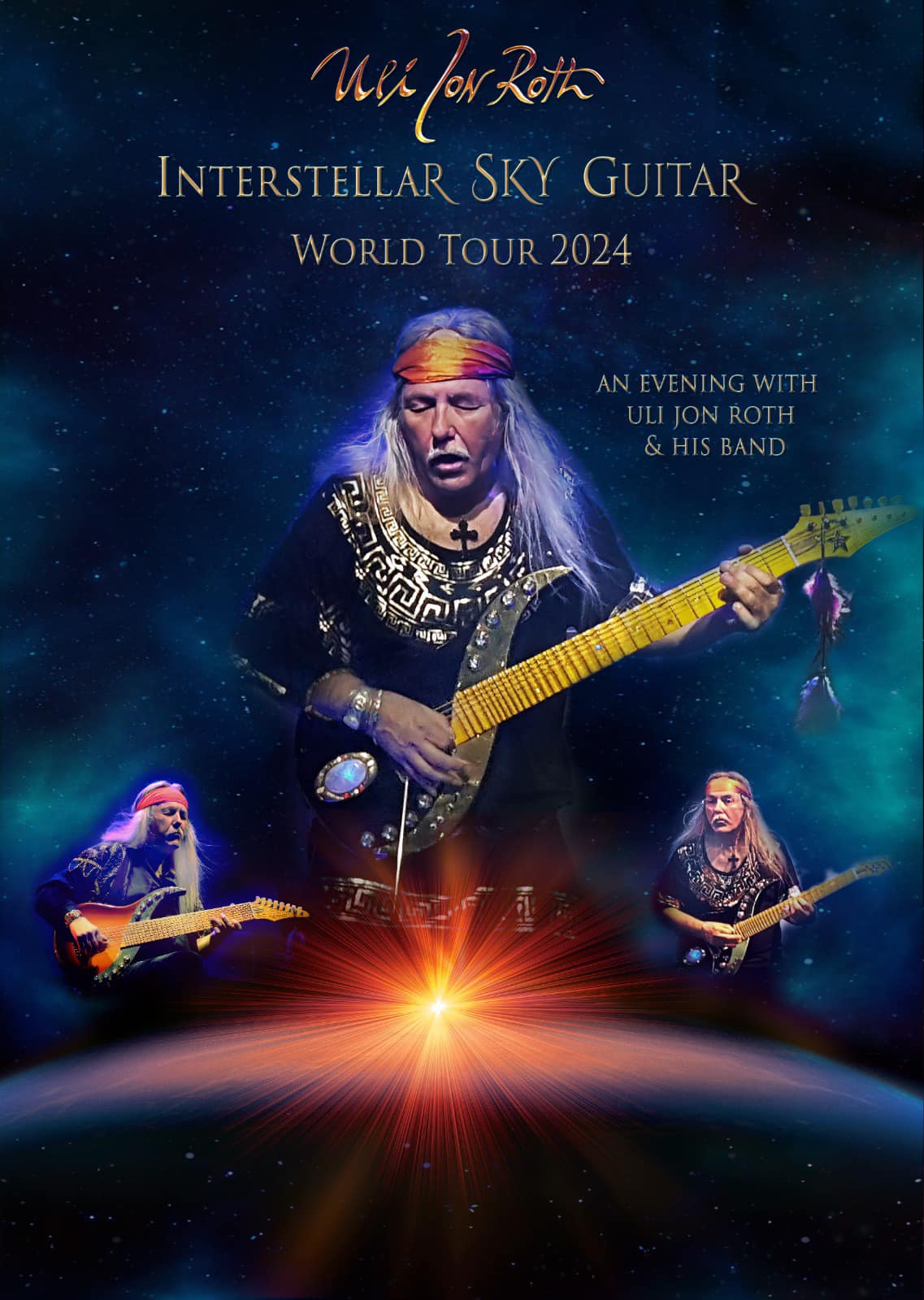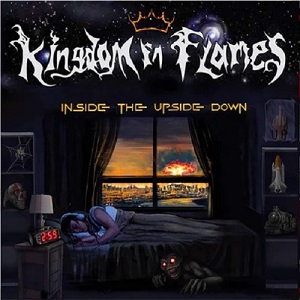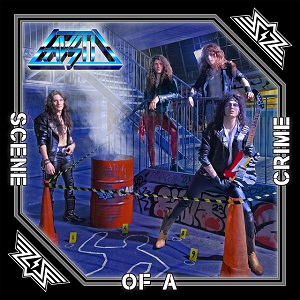ULI JON ROTH Explains Why He Prefers ‘70s Guitarists – “Too Many Players Play Without Meaning”
January 5, 2024, 12 months ago

Greg Prato reporting for Ultimate-Guitar.com:
Has shred guitar been taken as far as it can possibly go in the modern age? By listening to such artists as DragonForce and Polyphia, it certainly appears so. But by focusing so much on the technical aspect of the instrument, have such important components as tone, phrasing, and feel been sacrificed?
One of shred's forefathers, Uli Jon Roth, recently spoke with Ultimate Guitar – including what fans can expect at his 2024 Sky Academy – but also, gave an extremely thorough response to the question, "Do you think that rock guitarists of the '70s had more feel in their playing than many of the modern-day shredders?" Below is his entire reply.
"Absolutely yes. Quite unequivocally, yes. And you know why? I cannot tell you in one sentence – I need to make a slightly bigger curve here in order to explain that."
"First of all, in the '70s, the rock guitar – whatever you want to call it – which came out of the blues and a little bit out of the jazz, was still very much in its infancy compared to what you find nowadays. So, the field was wide open."
"Because I remember it very, very well – I've been on stage since 1968. And what was around in 1968 was very different from what was around in 1974 or '75. There's a huge development – technically and sonically – on the electric guitar between those seven years. In '68, you're at the peak of Jimi Hendrix with 'Electric Ladyland,' and then there was Eric Clapton, there was Jeff Beck, there was Jimmy Page, and there were several others. Ritchie Blackmore was just emerging."
"But then in the '70s, it was kind of a 'hybrid thing.' More players started to discover dexterity and different kinds of scales away from the blues – a little bit more towards the classical scales. And everything became a little smoother. The danger zone was when Jimi Hendrix was there, and Eric Clapton in the early days of Cream – nothing like that had ever happened. That was such a new beginning for rock music. Kind of the ultimate 'power template.' What they didn’t do was they didn't explore the guitar from a technical point of view. They didn't go much further than what the blues vocabulary was."
"That happened slightly later – starting with people like Ritchie Blackmore, then you had Jan Akkerman, then you had Michael Schenker, and… yours truly. And there were some others – Gary Moore. It was a new generation coming up – building on that. But that generation played with sound and feeling. Because everything was still so new. It was completely uncharted territory. It was very exciting."
He goes on to say:
"Too many things are nondescript at the moment. We need more uniqueness, we need more expression, more depth, more message. Jimi Hendrix was not by nowadays standards a great technical player. But what he played was always good enough for what he wanted to express – that was just that time. The time of arpeggios had not yet arrived. But within what he did, every note – whether it was good or bad – had a meaning. A real meaning. Just like a sentence in a great novel has a meaning."
"And too many players play without meaning. They just play phrases. And they're empty. An arpeggio up and down is empty – there is no meaning in it. Unless you've got something to say."
"So, this is your answer to your question from my point of view. I took about five minutes to get there, but to me, what I just said makes sense. I'm not just saying it because I'm 'the elder statesman' who is nigh on 70 years old. When I was 15 or 20, I remember exactly what that was like, and I can still judge music on the same kind of level. It has nothing to do with this generation, that generation, this generation, that generation."
"The journey of the electric guitar is fascinating. At the moment, we're at a point where something has gone missing – that's all I'm saying. And there's enough talent out there – there are so many gifted young players and that's great. All I'm saying is, 'How about if we start looking at things slightly differently?' Look towards the past in the sense that what was great then, maybe take some of that, bring it into the future. That's great. Because of course, the past is no better than… the bottom line is it's all just a reflection of the zeitgeist."
After five long years, Uli Jon Roth is finally returning to North America with a rescheduled 30-date tour in April/May 2024. This isn't just an ordinary concert - it's an invitation to join the Interstellar Sky Guitar tour, a captivating 3-hour show of music and excitement.
The integrated multi-media show unfolds in two parts:
Part I: An intimate evening with Uli Jon Roth, featuring a selection of both new and older pieces composed by Uli, including excerpts from Vivaldi’s Four Seasons and Uli’s Metamorphosis Concerto. It will also include a brief ‘TED Talk’ by Uli, introducing his new book In Search Of The Alpha Law.
Part II: Uli navigates through his musical history, performing hits from the early Scorpions and Electric Sun years, with the support of his band.
Find more tour and ticket information at ujr.info.

Dates:
April
2 - Mesa, AZ The Venue - The Canyon
3 - Hollywood, CA - Whisky A Go Go
4 - Ramona, CA - Ramona Mainstage
5 - San Juan Capistrano, CA - The Coach House
6 - Concord, CA - Vinnies
7 - Santa Rosa, CA - The Flamingo Resort
12 - Seattle, WA - Tractor Tavern
13 - Portland, OR - Bossanova Ballroom
18 - Hobart, IN - Hobart Arts Center
19 - St. Charles, IL - Arcada Theater
20 - Chicago, IL - Reggies
21 - Detroit, MI - Token Lounge
24 - Sellersville, PA - Sellersville Theater
25 - Fall River, MA - Narrows Center for The Arts
26 - Derry, NH - Tupelo Music Hall
27 - New York, NY - Iridium
28 - New York, NY - Iridium
May
1 - West Yarmouth, MA - The Music Room











